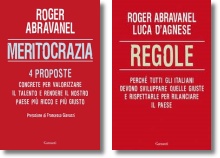Archive for May, 2011
Dijkstra’s Humble Programmer
 Why programming is generally considered a difficult task?
Why programming is generally considered a difficult task?
Many people think programming is difficult to learn if you don’t have a bent for it.
I’m among those who think that anything can be learned, given the necessary amount of will and time available. However I understand that some aptitude is needed, in particular for logic and mathematics, in order to become a good programmer.
Maybe an answer comes from an article by Edsger Dijkstra, a Dutch computer scientist winner of the Turing Award in 1972, titled The Humble Programmer.
In the article Dijkstra explains that programming is a task requiring a lot of intellectual effort, since our minds are limited, and the programmer often needs to keep in mind many abstraction levels at the same time: from the lowest, the code, to the higher, the interface presented to the user, passing through a number of levels set by the platform you’re working on and by the application architecture.
Actually, it’s a task requiring a lot of concentration for long periods of time.
If you’re good at using concepts such as encapsulation and independency among modules, you can reduce complexity and keep in mind a lower number of levels at the same time, but there’s no doubt it’s a brain intensive task. Because of this, according to Dijkstra, the programmer must approach it with as much humility as possible.
This explains, for example, why it isn’t easy at all replacing a programmer in a company: code is just an abstraction level, other levels stay in the brain of who’s writing it.
It’s a wise and still current article: as computing power increases (while our brains don’t!), we should stick to the best tools (modest and elegant programming languages) and find manageable solutions.
My bottom line is that being humble in front of brain intensive tasks can help not only in programming.
Meritocracy and Rules
 Can a country or a company survive even if it doesn’t care about meritocracy?
Can a country or a company survive even if it doesn’t care about meritocracy?
Yes, probably, but just survive, since in the fast global market it’s destined to lose competitivity.
I read the two books, Meritocracy and Rules, with interest. They accurately analyze important subjects, often superficially mentioned in articles and debates on traditional media.
The first book by Roger Abravanel left me with a definitely optimistic impression: after an analysis of the value of recognizing and rewarding merit, as well as the best practices this social attitude can lead to in different environments, from small companies to public administration, Abravanel makes 4 realistic proposals to develop meritocracy culture in Italy.
The second one, written by Abravanel together with Luca d’Agnese, left me feeling a bit more pessimistic, since they unravel the causes that generated “vicious circles” of rules in our country, making it fall to the bottom of numerous international rankings about competitivity in various sectors.
We need to fire up “virtuous circles” of rules, because making rules is as much important as respecting them, to understand which of them needs to be canceled or changed.
However, if our country sits on the proverbial “rule made, cheat found”, we can forget to regain competitivity. 🙁
I think everything starts from schools and good teachers. Abravanel’s proposals about this are realistic and perhaps something is happening, slowly, while dinosaurs egoistically defending their positions are extinguishing…
The books are a must read even for startuppers. By definition a startup has to act quickly to become competitive, and in my experience this isn’t possible if startup members don’t really understand how important meritocracy is.
Blog Lifting
 Rather than a lifting, I had to do a plastic surgery operation to the blog!
Rather than a lifting, I had to do a plastic surgery operation to the blog!
It’s a metaphor to say that I had to work a lot to fix it: I rebuilt the whole database since I couldn’t access to the WordPress control panel any more, I suspect due to a non up-to-date installation or a buggy plugin.
So I checked and fixed all the 219 posts I wrote until now, both in italian and english, fixing broken links in the process.
Reading all the posts recalled me why I’m blogging: to collect memories and experiences I lived in first person and share them, hoping they can be useful to others.
Among the “dearest” posts, for example, there’s the one I wrote for the loss of my cat Willy.
Or the one with the videos of my first interview on TV… ehi, how long ago? I looked like a boy! 😉
Or event the one I wrote when I came back from the Vespatour… well, each post has a meaning, a little story to tell.
We’re living in times where looks are everything, even too much, so I tried to choose a simple but attractive theme, customizing Fusion by digitalnature.
Useful are the two accessibility functions on the top right of the page: clicking on Aa you can chance to font size, while <> changes the page width.
I couldn’t do without a plugin to manage sharing options on main social networks, and I choose the one made by LinksKu.
I hope you appreciate the new look, but that contents are the motivation for you to come back.
